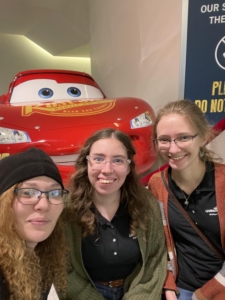Winter Retreat
Author: Katelyn Wissinger| Student, Living Education – Charlotte, 2024-25
Over our winter break, we took a trip into the North Carolina mountains for a relaxing retreat before getting back to the books again. Despite the chilling temperatures outside, we students had the opportunity to go snow tubing and hiking through the winter scenery. When it was time to warm up, the students huddled around inside to play games, make candy, and catch up with each other. This winter retreat allowed us to make memories and build stronger bonds that will last far longer than just the couple of days of the trip.
Sunday
On Sunday afternoon, we set out for the three-hour drive into the North Carolina mountains to the rental house we would stay in for the next few days. The home was surrounded by a pine farm and sat high in the landscape, allowing us to fully appreciate the beautiful sunset. On the night of arrival, all of us students and the faculty members assembled around a long table for a group meal of taco salad. A major highlight of the night was a game of spoons that most students engaged in, eagerly on edge for that one remaining spoon.
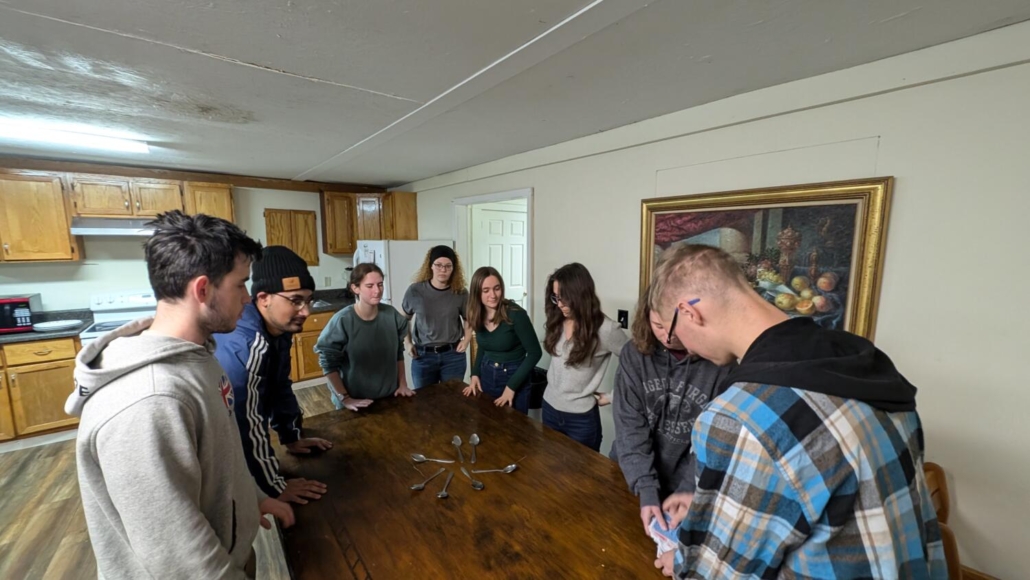
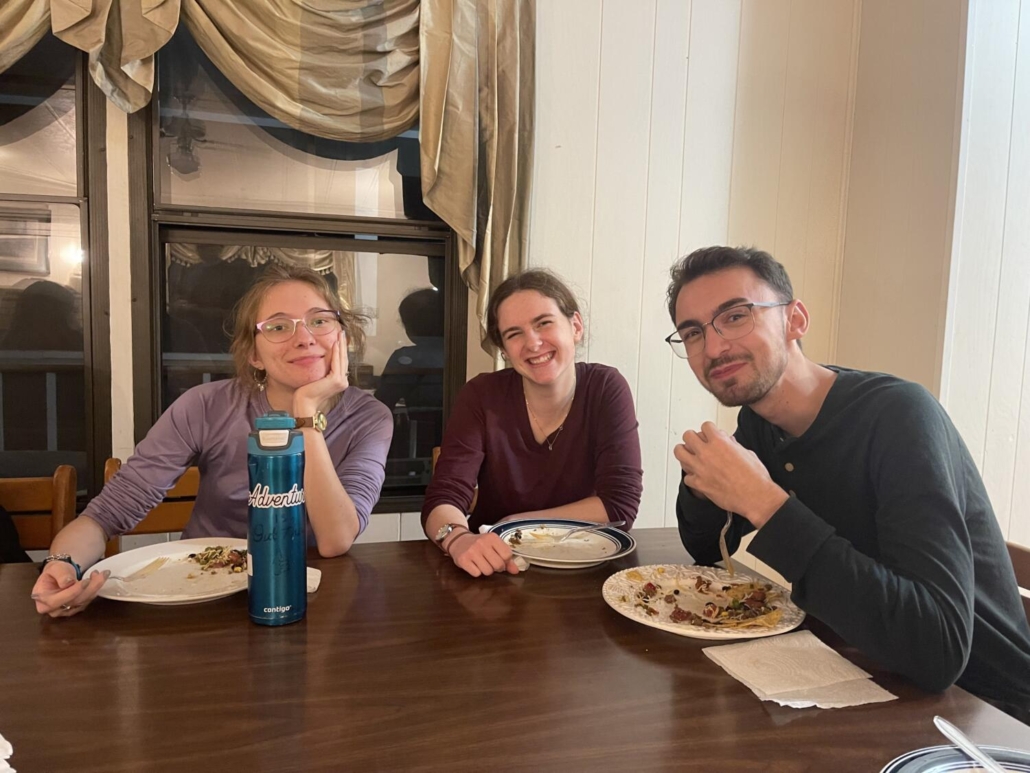
Monday
On Monday, we woke up to a continental-style breakfast prepared by some of the LE ladies who provided us with the nourishment we needed to go snow tubing in the chilly weather. Despite the long lines, the students enjoyed numerous rides down the slippery slopes, letting out whoops and hollers with the thrill of quickly sliding down the slope. After finishing snow tubing, we returned to the warmth of the house. The afternoon hours were spent relaxing and playing card games. Later in the evening, Mr. McNair announced to us that we would be in for a sticky surprise. Led by the 2nd year students, we were divided into teams to make the best-tasting honey taffy. We all found ourselves in sticky situations, but the result more than made up for it.
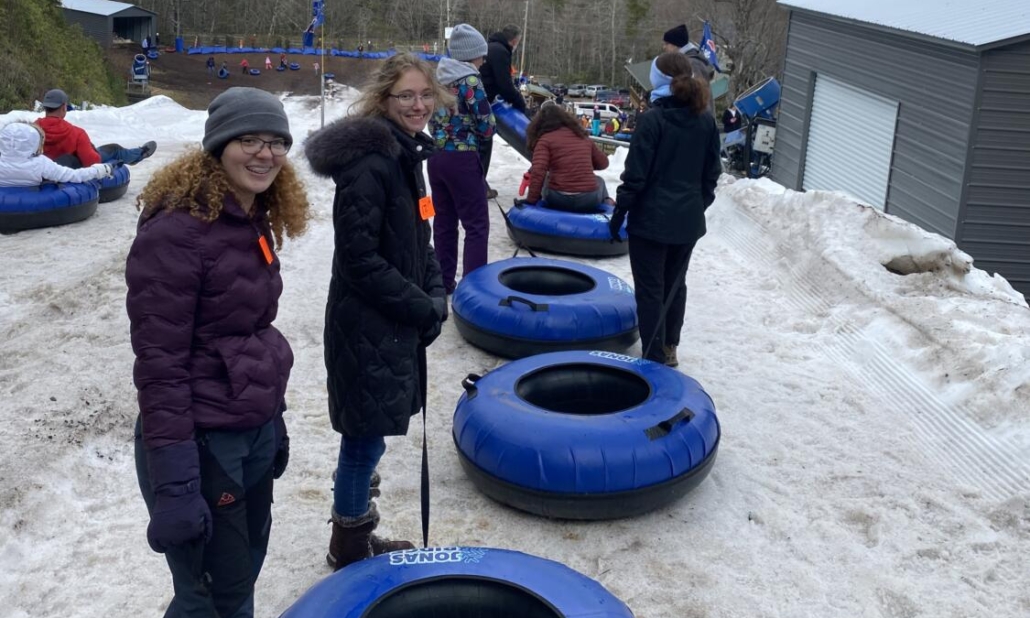
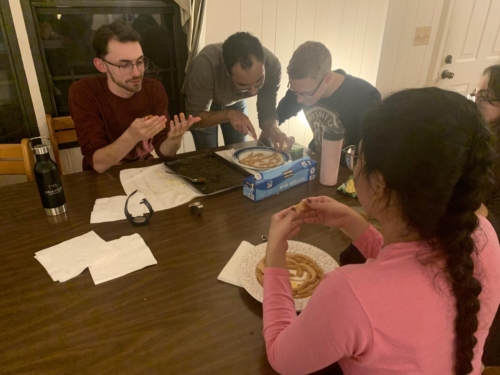
Tuesday
On the final full day of the retreat, we traveled to Grandfather Mountain. While the fog hindered our views as we wound our way up the mountain, the Grandfather Mountain Park team provided us with an audio-guided tour in our vehicles that reviewed its history. Along the route, we stopped at the nature discovery center, where we viewed a short film on all the mountain offers its visitors. The fog parted on the way back down the mountain, and we got a much clearer view of the surrounding landscape. Back at the house that night, we all settled in for games of Bible-themed jeopardy, which made us realize how difficult it can be to come up with answers when put on the spot. The night’s activity reminded us of how much we have to learn yet and the usefulness of our classes in the coming semester.
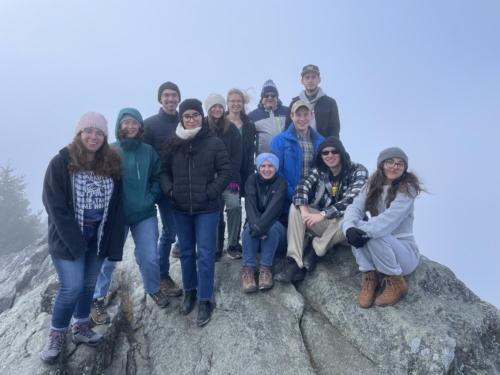
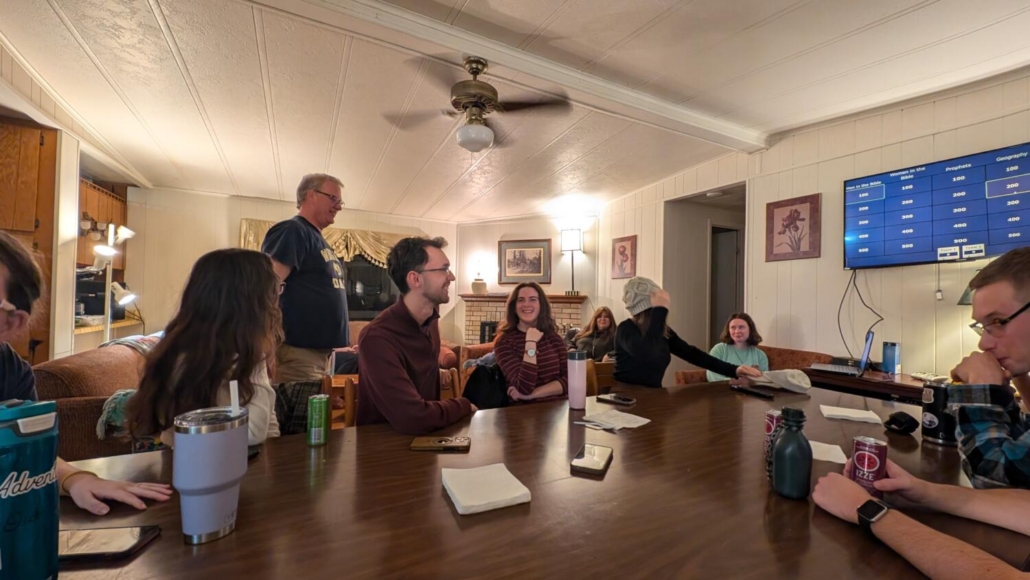
Reflection
This winter retreat provided our students with valuable memories that will last with us longer than the trip itself. While we may have been frozen on the outside by the crisp weather, our hearts were warmed by the stronger bonds we built between each other. Now it’s time to jump into the new semester!


